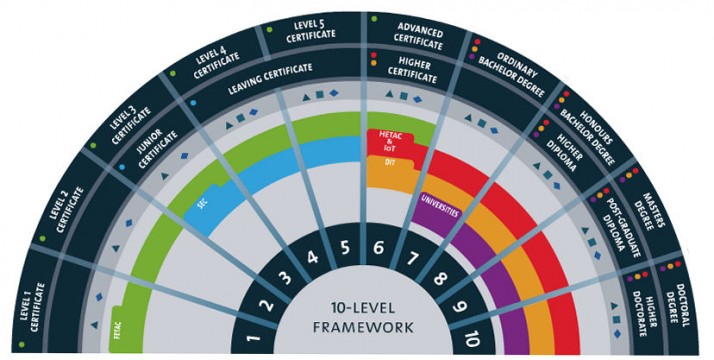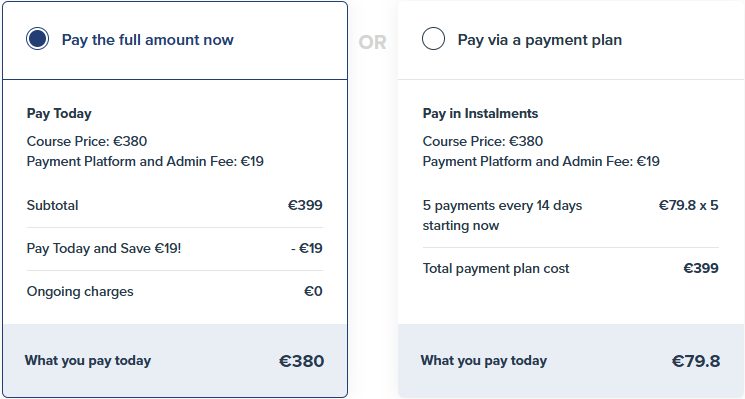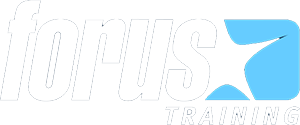
Challenging Behaviour - Live and Online Course
Standalone or Part of Major Award
This module is aimed at professionals and non professionals seeking to further their knowledge and skills and broaden their understanding of the triggers and impact of challenging behaviour on the individual, support staff, family and service providers.
Discover course payment options.
You have two options of payment!
We are flexible and offer two payment options for every course. You can choose choose to pay in installments or pay in full.
WANT TO KNOW MORE ABOUT THIS COURSE?
Check below for more details.
Single modules are the best way to build your path to becoming fully certified and
get recognised by NFQ education point scheme.
This course is suitable for you if you are new to your role in health or social care or if you wish to gain this valuable qualification and find a job in this sector.
Access to the Programme
Mature Applicants with relevant life and work experience are welcomed. The Course Advisor is available to meet with prospective learners to discuss and advise on the course details, career and academic opportunities and assess your suitability for the course.
Entry Criteria
Entry criteria / prerequisites Level 4 Certificate / Leaving Certificate (or equivalent) or relevant life experience detailed in a current Curriculum Vitae. Please provide details and attach a copy of either a current CV or Certificate. Learners must be a resident of Ireland / based in Ireland.
English
As this NFQ level 5 qualification is delivered through English it is necessary learners will have sufficient written English skills to complete this course. Forus Training recommends a minimum English language competency of IELTS 5.5 (or equivalent) for successful completion of this programme. If you are not sure what level of English competency you have, please contact hello@forustraining.ie and a Course Advisor will arrange for you to take an assessment.
IT Skills and Equipment Required
Basic working knowledge of computers and access to a computer with internet access is required to do the course. A PC with Windows 8 or later or a Mac with OSX 10.5 or later.
- An internet connection with a speed of at least 10mbps.
- The latest version of Chrome, Firefox, Edge or Safari, set to accept cookies and pop-ups.
- Adobe Flash and Adobe Reader, to view content.
- Word processing software, such as MS Word or Google Docs.
- Some courses include video, therefore your computer must be capable of playing video and sound.
* eLearning and tutor support may vary by course, please check each course page for details.
Reasonable Accommodation
To reinforce inclusion for all our learners we offer customised learning support for individual applicants who require accommodations. Additional Requirements Forus Training provide a range of supports for learners to ensure that our programmes and services are accessible to all.
On application for a course with Forus Training please discuss any additional requirements with the Course Advisor at hello@forustraining.ie so that the appropriate supports for teaching, learning and assessment can be considered. It is important that you discuss your needs with centre staff as early as possible.
Throughout this programme, you will discover how to;
- Define the concept of "challenging behaviour"
- Identify inappropriate behaviour presented by an individual with intellectual disability
- Describe behaviour in observable, measurable terms
- List the goals of Positive Behaviour Support
- Explain how internal factors, related to a person's health and well being, can underlie challenging behaviour
- Explain how external factors related to the environment and the reactions to behaviour, can underlie challenging behaviour
- Define the terms "positive reinforcement", "negative reinforcement", "antecedent" and "setting events"
- Recognise examples of positive and negative reinforcement of inappropriate or challenging behaviour in daily situations in the lives of people with intellectual disability
- Recognise examples in the daily lives of people with intellectual disability, where inappropriate or challenging behaviour is being maintained by the setting events and antecedents prior to the behaviour
- Demonstrate how the parts of the Antecedent, Behaviour Consequence (ABC) model work together
- Use an ABC chart for recording observations of inappropriate or challenging behaviour
- Gather and record information about an individual with intellectual disability that can be used in the analysis of challenging behaviour and development of a support plan
- Distinguish between inappropriate behaviour and challenging behaviour
- Describe the challenging behaviour presented by an individual with intellectual disability in terms that are observable and measurable
- Outline the typical strategies used by staff and carers for dealing with inappropriate behaviour
- Outline the values underpinning Positive Behaviour Support
- Evaluate how well the goals and values of the Positive Behaviour Support model fit in with the policies of a service provider relating to challenging behaviour
- Discuss how challenging behaviour can be reinforced both positively and negatively
- Explain why negative reinforcement and punishment are not used in the Positive Behaviour Support model
- Describe the four types of strategies that constitute Positive Behaviour Support: teach new skills, teach alternative skills to replace the challenging behaviour , change the environment, use the ABC model to increase desirable behaviour and decrease or prevent challenging behaviour
- Outline the guidelines for selecting skills to teach
- Discuss a range of characteristics that promote positive environments.
WHAT WILL YOU DO ON THIS COURSE?
The Challenging Behaviour - Live and Online course outline can be found below...
Induction - Before You Start
Concept of Challenging and Inappropriate Behaviour
Observing and Measuring Behaviour and Goals of PBS
Factors that Influence Behaviour
Positive and Negative Reinforcement and Strategies
Setting Events, Antecedents, Strategies, and ABC Chart
Developing a PBS Plan
Behaviours and Strategies Used in Practice
Evaluation of PBS
Evaluation of Positive and Negative Reinforcement
Four Strategies of PBS, Positive Environments and Teaching Skills Guidelines
FIND WHAT PEOPLE SAY ABOUT THIS COURSE.
All the reviews about Challenging Behaviour - Live and Online course
Assessment Details
Complete your Level 5 course and submit your coursework in 9 weeks .
Assessment
The course 5N1706 Challenging Behaviour is assessed in the following ways, with the following weighting;
- Assignment 40%
- Project 60%.
Assignment
An assignment is an exercise carried out in response to a brief with specific guidelines as to what should be included. An assignment is usually of short duration and may be carried out over a specified period of time.
Project
A project is a response to a brief devised by the assessor. A project is usually carried out over an extended period of time. Projects may involve research, require investigation of a topic, issue or problem or may involve process such as a design task, a performance or practical activity or production of an artefact or event.
Grading
Pass 50% - 64%
Merit 65% - 70%
Distinction 80% - 100%
Tutor Support
At Forus Training, we have many different supports available for your learning.
Learner Pack
- When you enrol on a course, you will receive a printed learner pack from your trainer on the first session of the event.
- This learner pack contains clear assessment instructions and comprehensive material to support you as you complete the course.
- The pack will also include induction information as well as forms that you will complete during and at the end of your course.
Trainer Support
- The trainer provides support to learners, including issuing feedback on draft work you will submit. Expect to wait up to 72 hours for a response by email from your trainer. Many of our trainers have full time jobs as well as training with us this means they will have up-to-date sector specific information, but also means that you need to allow a little time for them to get back to you. Our trainers are current with practice in the sector in which they work.
- Trainers can, by appointment, make time available to you before or after class to answer your queries that cannot be covered in the session. They can also make an appointment with you to discuss your work on a telephone call.
Assessment Upload Facility
- We have a user-friendly assessment upload facility available to you..
Support with Preparing for Assessment
If it has been a while since you’ve studied, we have free, short presentations on Study Skills, Academic Writing and Harvard Referencing to assist you in your work.
Technical Support
- Technical support is available by phone to 044 9349400 or by email: hello@forustraining.ie (Monday to Friday : 9am to 5:30pm).
Compassionate Consideration
- Where a Learner, pursuing an award, through no fault of his/her own, is unable to complete their assessment, the exit pathway below is in place to facilitate this Learner with an alternative course. The Learner is given the opportunity to obtain the Award by completing the course at an alternative date/location should they have relocated to an area where we provide the same award.
- The following are examples of circumstances where a Learner is unable to complete their project/their course:
● Bereavement,
● Illness,
● Pregnancy,
● Relocation,
● Extenuating circumstances.
- Please see P9 S7 C6 Compassionate Consideration Policy.
Learner Welfare
- P9 S6 C6 Learner Welfare Policy and practices are fully integrated throughout teaching and learning experiences by both Trainers and staff to effectively meet the health and wellbeing needs of all Learners. The Forus Training welfare policy is focused on the welfare of all Learners and addresses any particular challenges individual Learners may be experiencing during their learning experience. The learning environment includes welfare support provided by staff for Learners which is fully integrated throughout the teaching and learning and organisation of teaching and learning to effectively meet the personal, social (wellbeing) and academic needs of Learners and staff. Please see the policy here P9 S6 C6 Learner Welfare Policy.
Supports for Learners with Disabilities and Specific Learning Difficulties
- Forus Training is fully committed to complying with relevant policies and legislation with respect to equality and disability. Registered and potential Learners with verified disabilities or specific learning difficulties may be given compassionate consideration and reasonable accommodation to enable them to successfully complete their programme. This is arranged by the Course Coordinator.
- A reasonable accommodation is any action that helps to alleviate a substantial disadvantage due to an impairment or medical condition. Such accommodations are put in place to help reduce these barriers in order to provide equality of access and opportunity for all. Reasonable accommodations are made for Learners on a case by case basis and must be supported with medical documentation. Both P9 S2 C6 Evidence of Disability Form and P9 S2 C6A Application Form for Reasonable Accommodation can be found at the following link:
- https://forustraining.ie/knowledge-base/how-do-i-access-reasonable-accomodations/
This course leads to a level 5 award on the National Framework of Qualifications. Students who successfully complete this programme may use their credits towards completing a higher level of study in the area of Health and Social Care.
Students who successfully complete this Major Award can also use the Certificate as the basis for entry into selected courses in Third Level Colleges and Universities.

Registration can take place through our website, this will involve you completing the relevant application form, providing us with your personal information so we can complete the registration on our side. Registration can also take place by telephone/email/Whatsapp or in person, this will involve you providing us details of the course you wish to study, providing us your payment details and agreeing to proceed with the purchase. By completing registration, you are agreeing to the terms and conditions set out herein.
Please read Terms & Conditions here.
DO YOU WANT TO GET A COURSE BROCHURE?
This module is aimed at professionals and non professionals seeking to further their knowledge and skills and broaden their understanding of the triggers and impact of challenging behaviour on the individual, support staff, family and service providers.

What is QQI?
QQI is the state agency responsible for the external quality assurance of further and higher education and training in Ireland.
QQI are responsible for the external quality assurance of further and higher education and training in Ireland.
QQI validate programmes, make awards and are responsible for the promotion, maintenance, development and review of the National Framework of Qualifications (NFQ).
QQI also inform the public about the quality of education and training programmes and qualifications, and advise the Government on national policy regarding quality assurance and enhancement in education and training.










